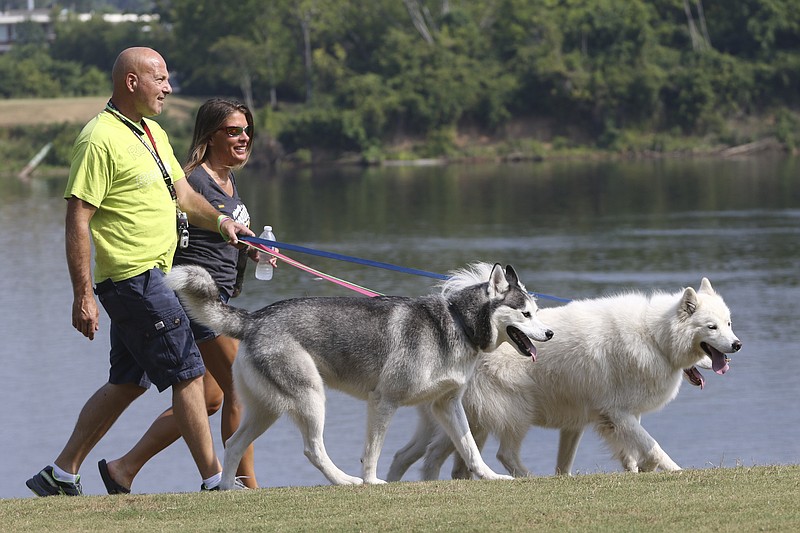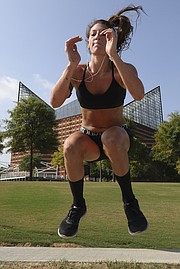An hour a day might keep dementia and diabetes away.
A study that includes a University of Tennessee at Chattanooga professor as a lead author is receiving international attention for highlighting how the harmful effects of a sedentary lifestyle can be negated.
"Physical Activity 2016: Progress and Challenges" is a follow-up to a 2012 study that determined physical inactivity to be as important a modifiable risk factor for chronic diseases as obesity and tobacco.
The new study, published in the prestigious English medical journal The Lancet, shows that 60-75 minutes of moderate physical activity per day can offset the negative effects of eight hours of sitting at a desk - reducing the risk of dementia and heart disease, among other ailments associated with inactivity.
The study incorporated data on more than 1 million people from around the world and focused, in part, on how to facilitate physical activity in developing countries.
But it also sends a strong message to Americans, including those in Hamilton County, where an expanding network of greenways and trails are bringing free exercise opportunities in an area where 29 percent of the population is obese.
"It doesn't necessarily mean that you go to the gym for an hour," UTC professor and study author Greg Heath said. "But if you can incorporate brisk walking, the accumulation of an activity - at least in minimum doses of ten minutes - can essentially offset sedentary behavior. That's a take-home message."
Heath, who is also the interim assistant provost for research and engagement at UTC, will be among a global team of researchers that will present the study's findings to the International Congress on Physical Activity and Public Health in Thailand in November.
The World Health Organization is aiming to reduce physical inactivity by 10 percent by 2025, but the study's executive summary says that goal will not be reached unless there is a rapid increase in action.
Heath said it's not just health-care professionals and public health departments that play a role in facilitating physical activity.
Transportation departments, urban planners, the education system and media need to realize their role in promoting activity, he said.
There may also be incentives for those who care more about dollars than diseases to listen. Between health-care costs, productivity loss and disability expenses, the annual global cost of physical inactivity is $67 billion, according to the study.
Locally, a new section of the Tennessee Riverwalk is opening this week that will stretch from Ross's Landing to the South Broad district. Heath said that, compared to other cities its size, Chattanooga has an accessible natural environment for walking and cycling.
"We've made some progress," he said. "But it's not been universal. It's been focused in certain areas. It's not ubiquitous. It's been rather selective. That infrastructure that's necessary to support physical activity as an easy access kind of thing, we still have a ways to go."
John Bilderback, director of the Hamilton County Health Department's Step ONE nutrition and exercise program program, recommended that those struggling to stay active start by finding something they enjoy.
"View it as a way to spend time with your kids, your family, your spouse," he said. "Dogs need exercise, too. That's always something to keep in mind as well."
And it just might give you more time to spend with them.
"Relating it to your own health, your own mortality and where you want to be in your twilight years, if you're a young person, do you want to be able to get up and play with your great grandkids? That's something people can recognize," Bilderback said. "They tend not to think about it as much as they maybe should."
Contact staff writer David Cobb at dcobb@timesfreepress.com or 423-757-6249.

